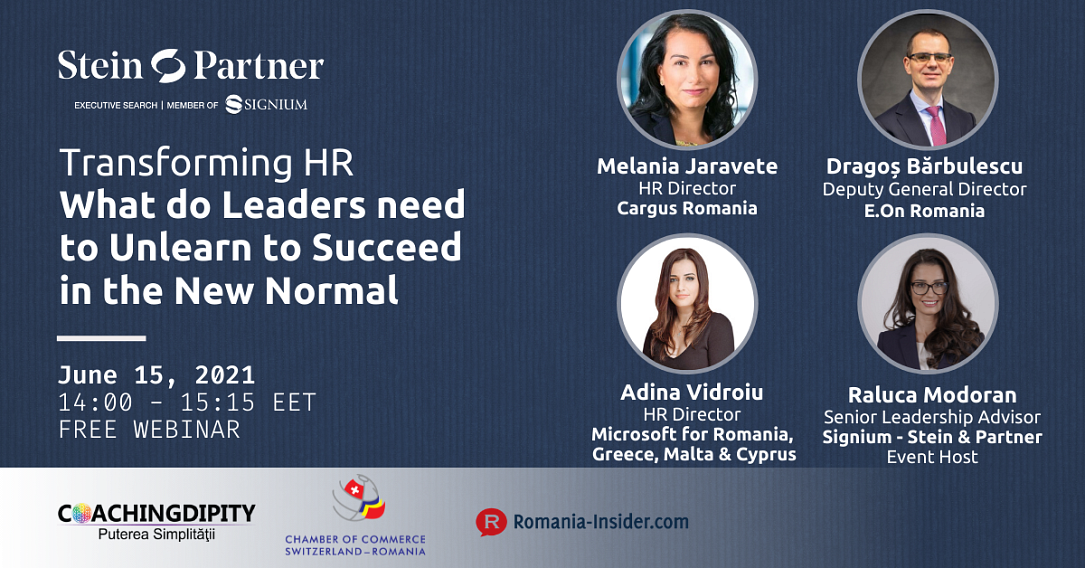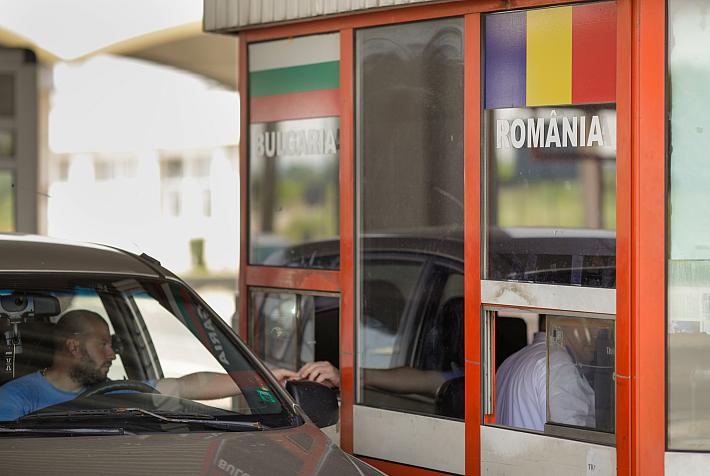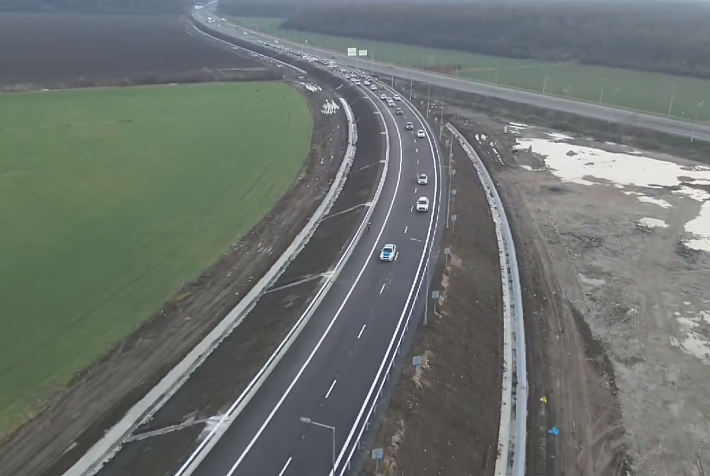(P) Unlearning - The key to wisely navigating in times of great upheaval

When the context abruptly and massively changes, such as the one we’ve been going through since the spring of 2020, the blueprint and practices of the past became out of place.
To move themselves and their organisations forward, leaders became aware of the need to adapt, so they continued to learn, but most of them started to unlearn. Otherwise, how can we make room for something new? How can we be open to new approaches and practices unless we conscientiously decide to give up the old, unnecessary ones? How can we be permanently on our toes, ready to change direction and inspire trust and commitment? Lots of questions that still need answers.
In the light of our upcoming webinar on June 15th: Transforming HR: What do Leaders need to Unlearn to Succeed in the New Normal we, at Signium – Stein & Partner, considered this a favourable moment to take a breather and sit down with our speakers Mrs. Melania Jaravete, HR Director at Cargus Romania, Mrs. Adina Vidroiu, HR Director at Microsoft Romania, Greece, Malta & Cyprus and Mr. Dragos Barbulescu, Deputy General Director and Group CFO at E.ON Romania, and collect some reflections from them, in an attempt to warm up the spirits before we go live with a new engaging concept of an interactive webinar.
What was the most valuable take away for you as Leader from the past 12 months?
Melania Jaravete: As the entire world shifted gears due to the pandemic, it became clearer and clearer that the HR function should evolve into the natural next step, HR needing to become Chief People Officer instead of a paperwork-based department, to re-acquaint itself with people, their needs, their concerns, and become the main communication channel guiding the team through this period and providing security, reassurance, and a stable context.
Adina Vidroiu: The past 12 months helped us learn more about ourselves and the importance of human connection. Believing in our people and showing care about what matters to them, namely their passions, purpose, and strengths, is strongly embedded in our culture. We made sure that we kept an open and constant communication with our employees, which contributed tremendously to creating clarity and trust. I've been amazed by the strength shown by our team and our community and impressed by the stretches in adaptability people demonstrate when they're set up to succeed. Trust, communication, and a focus on output do wonders in a remote workforce, and having supported flexible ways of working, the past year has proven it can all work out.
Dragos Barbulescu: I have learned that although we cannot accurately predict the future, it is important to react calmly and resolutely to the unknown. Contingency plans and a resilient organization will always allow us to respond effectively and efficiently to difficult situations.
I also learned that any crisis brings with it several opportunities and that it is in our power, as leaders, to take advantage of them and keep our people close, connected and engaged to the realities of the business.
The Covid-19 pandemic was an accelerator of the digital transition, which remains a priority for us in all areas of the organization, being a method of streamlining the business and improving the experience of our customers. On the other hand, we cannot talk about the future, about technology and the development of innovative digital solutions without motivated employees and adapted to the new reality. We must continue our cultural transformation, to invest in our people and thus to attract diversity in terms of abilities and personalities, so that team members can amplify each other's results.
The performance comes out from resilience, agility, independence (given by the team's abilities and the vote of confidence won from the organization), curiosity, and the ability to see the full spectrum. These are also the ingredients we aim to develop through our team members, added Dragos Barbulescu.
What has helped you personally keep the balance through this uncertain context?
Melania Jaravete: Despite the challenging context, my anchors are the family, friends and work content that makes me feel I can contribute. These have kept me grounded, reminded me that we are supported, understood, and accepted in our journey and that we can remain true to ourselves even in a shifting environment.
Adina Vidroiu: Living in a pandemic this past year and a half has posed immense challenges for everyone and a steep learning curve. When uncertainty became the only sure thing, we refused to stay under the pressure of disruption and instead became stronger, leaning on soft skills like empathy, motivation, and collaboration to support each other. Personally, spending more time with my family and friends, as well as focus more on my own wellbeing, helped me maintain balance.
Dragos Barbulescu: Before being leaders, we are human beings, so difficult situations are influencing us emotionally too. Accepting the situation and looking for solutions are the first things you can do.
I could say that I've created a new, beneficial routine for myself, for things which in the past I didn't have time for or paid insufficient attention to, and I've realized how important are these for my balance.
As a person, keeping the balance meant a combination of several factors: family, social connectivity with friends and colleagues, physical activity, allocating time to relax and reset.
As a business, times of crisis require adaptability. The new technologies have helped us to stay connected and ensure the functioning of the companies and the services at an optimal level. All this time, we kept the team close, and we did our best to communicate even more with each other to stimulate the involvement in the new projects and thus to have all the highest possible morale and motivation.
The days when the responsibility of the CFOs and the financial executives was limited to financial reporting, compliance, audits, and the presentation of annual accounts are gone. The current context forces us to look up from the spreadsheet and quickly find solutions to adapt and, where possible, reinvent ourselves.
Today's CFO must be able to see the "big picture" and play a key role in strategic capital allocation and corporate governance decisions. Currently, we are talking about some basic pillars in leadership: on the one hand the development of self-control, problem solving and decision making; then strategic agility and business acumen. To these is added the management of relations with all those involved. From this point of view, the open and empathic communication, the optimistic approach to the new situations have helped both at team level and individually, to overcome the pandemic period, and all the lessons learned will certainly be seen in future progress, added Dragos Barbulescu.
For more reflections on people and organisational practices, join us on Tuesday, 15th of June, at 14:00 EET, for our second online event in the Transforming HR series - https://steinandpartner.com/events.
(p) - This article is an advertorial.












